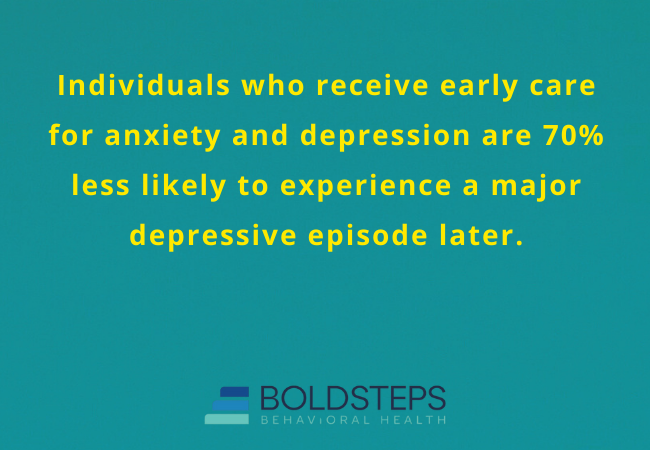Too many people wait until they’re in crisis to seek help. Whether it’s pushing through depressive symptoms, ignoring chronic anxiety, or self-medicating with substances, delaying mental health treatment often leads to worsening conditions, disrupted relationships, and unnecessary suffering.
At Bold Steps Behavioral Health in New Hampshire, we believe in the power of early intervention. Our Mental Health Treatment Programs in New Hampshire are designed to provide immediate support, tools, and relief for individuals before their symptoms escalate into crisis. The earlier you start, the stronger your recovery can be.
The Cost of Waiting: How Delayed Treatment Worsens Mental Health
Mental health issues rarely resolve on their own. In fact, untreated conditions tend to:
- Become more severe and harder to treat
- Disrupt work, school, and relationships
- Lead to physical health issues like insomnia, weight changes, or chronic pain
- Increase the risk of self-harm or suicidal ideation
- Raise the likelihood of substance misuse or dependency
According to national data, the average delay between onset of mental illness symptoms and treatment is 11 years—a gap that contributes to long-term dysfunction and distress.
The Benefits of Early Mental Health Treatment
Early treatment can transform outcomes, often preventing more intensive interventions later. At Bold Steps NH, our early-stage care offers:
- Faster symptom relief and emotional stabilization
- Greater success in therapy and medication adherence
- Prevention of co-occurring disorders like addiction or trauma responses
- Improved self-awareness and resilience
- Reduced risk of relapse, hospitalization, or long-term disability
The earlier you address the issue, the more likely you are to build lasting tools for success.
Recognizing the Early Signs: When to Seek Help
Mental health symptoms can be subtle. Seek treatment if you experience:
- Persistent sadness, low energy, or hopelessness
- Excessive worry, fear, or racing thoughts
- Irritability, restlessness, or mood swings
- Sleep disturbances or appetite changes
- Difficulty concentrating or withdrawing socially
- Loss of interest in hobbies or relationships
- Reliance on substances to cope with emotional discomfort
If you relate to even a few of these signs, starting with an outpatient consultation can help you understand your options without pressure or judgment.
How Early Treatment Prevents Escalation into Crisis Care
When caught early, many conditions can be managed with Outpatient Treatment Programs in New Hampshire, including:
- Weekly therapy sessions
- Medication management and psychiatric oversight
- Optional group support or family sessions
- Tools for anxiety reduction, stress management, and healthy habits
Without early care, individuals often require higher-intensity support like an Intensive Outpatient Program (IOP) or Partial Hospitalization Program (PHP). These are highly effective when necessary—but early care often prevents needing them altogether.
Early Treatment and Substance Use: Stopping the Cycle Before It Starts
Many individuals with untreated depression or anxiety turn to alcohol, marijuana, or prescription drugs to cope. This self-medication can rapidly evolve into dependency.
At Bold Steps NH, our Addiction Treatment Program in New Hampshire integrates early-stage care for:
- Individuals at risk of developing substance use disorders
- People using substances occasionally but noticing growing dependence
- Clients with co-occurring mental health and substance use issues (dual diagnosis)
Addressing these behaviors before addiction takes hold can save years of hardship.
Mental Health in Young Adults and Teens: Why Early Support Is Crucial
Teens and young adults face unique mental health risks—including:
- Academic pressure
- Social anxiety and identity concerns
- Trauma, bullying, or grief
- Family instability or communication gaps
- Early experimentation with substances
Starting therapy during these stages helps normalize emotional expression, improve coping, and prevent escalation. We often use Outpatient and IOP programs to support this age group effectively.
Our Early-Stage Mental Health Services at Bold Steps NH
We offer a full range of services depending on your symptom level and lifestyle needs:
Outpatient Mental Health Program
- 1–2 sessions per week
- Ideal for mild symptoms or maintenance
- Flexible and discreet support
Intensive Outpatient Program (IOP)
- 3–5 days per week, 3-hour sessions
- Ideal for moderate symptom management
- Combines individual, group, and psychiatric care
Partial Hospitalization Program (PHP)
- 5–6 days per week, up to 6 hours/day
- Structured care for acute symptoms or high relapse risk
- Often used as a step-down from hospitalization or residential care
Our team will guide you toward the least restrictive but most effective level of care for your needs.
What to Expect When You Start Early Care at Bold Steps
Your journey begins with:
- A confidential clinical assessment with a licensed provider
- A personalized care plan aligned with your goals and schedule
- Introduction to your therapist, psychiatrist (if needed), and case manager
- Regular care reviews to monitor progress and adjust treatment
- Access to family involvement and community support when desired
We’ll walk beside you through every step—without pressure, stigma, or judgment.
Why Choose Bold Steps NH for Early Mental Health Care
As a top-rated Behavioral Health Treatment Center in New Hampshire, we offer:
- Trauma-informed and evidence-based therapy
- Dual diagnosis and substance use prevention care
- Flexible scheduling and telehealth options
- Licensed, compassionate clinical team
- Discreet, welcoming environment for first-time clients
- Seamless transitions between outpatient, IOP, and PHP
We understand that asking for help early takes courage—and we honor that with individualized, supportive care.
Conclusion
Mental health symptoms aren’t signs of weakness—they’re signals asking for care. The sooner you respond to those signals, the easier it is to regain control, build resilience, and prevent long-term struggles. At Bold Steps NH, we help you step into support without waiting for a crisis. Call 603.915.4223 to schedule a confidential consultation and begin treatment that fits your life, your pace, and your goals.
FAQ on Early Mental Health Care
Why is early mental health treatment important?
It helps reduce symptom severity, prevent escalation, and improve long-term outcomes by offering support before a condition becomes unmanageable.
What are early signs that someone should seek mental health treatment?
Persistent sadness, anxiety, sleep changes, social withdrawal, and difficulty functioning are all early signs that shouldn’t be ignored.
Can early treatment prevent hospitalization or more intensive care?
Yes. Early intervention often allows individuals to stabilize with outpatient services, reducing the need for inpatient or PHP-level treatment.
Does Bold Steps NH offer care for early-stage symptoms?
Yes. We provide outpatient, IOP, and PHP options designed to meet individuals at every stage of their mental health journey.
Is it common for untreated mental health issues to lead to addiction?
Yes. Many people use substances to cope with untreated anxiety or depression, which can lead to dual diagnosis conditions over time.



